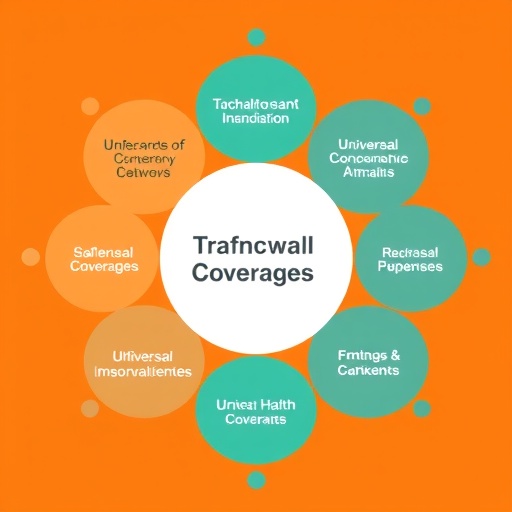As global populations continue to grow and age, the promise of universal health coverage (UHC) becomes increasingly critical. Researchers have grappled with the intricacies of health policy commitments that underpin UHC, exploring essential frameworks that provide a thorough understanding of how these commitments are constructed. The work of Andrew Williams and Johan Sundewall sheds significant light on this pressing topic in their upcoming article that will appear in the esteemed journal Health Research Policy and Systems.
Williams and Sundewall present a comprehensive analysis aimed at demystifying the complex landscape of health policy commitments. They argue that achieving UHC is not merely an administrative exercise but rather a multifaceted challenge that requires keen insights into the political, social, and economic dimensions of healthcare delivery. Their study aims to unravel the web of policymaking processes that make UHC a tangible reality in various nations.
The authors begin by situating their analysis within the context of global health initiatives. The worldwide push for UHC has gained momentum over the past decade, especially since the adoption of the Sustainable Development Goals in 2015. Williams and Sundewall assert that understanding the roots of policy commitments is crucial for not only advocating for UHC but also for evaluating existing frameworks and their effectiveness in meeting the health needs of populations.
One of the core elements of the framework presented by the authors is the classification of policy commitments into distinct categories. They explore how political will, financial investments, and institutional infrastructure are interlinked in the pursuit of UHC. The article emphasizes that without robust political commitment, financial allocation becomes meaningless. Therefore, the authors urge stakeholders to consider the interplay between these elements when analyzing UHC commitments.
Moreover, Williams and Sundewall delve into the role of civil society in shaping health policy agendas. They argue that grassroots movements and advocacy groups are vital in holding governments accountable to their health commitments. The authors highlight case studies where civil society participation has led to significant advancements in health policies, showcasing the profound impact these organizations can have on driving UHC forward.
The article also addresses the socio-economic barriers that often hinder access to healthcare services. Williams and Sundewall underscore the importance of inclusive policies that target marginalized communities. They argue that equitable health policies are foundational to achieving true universal coverage, as disparities in access and quality healthcare can perpetuate cycles of inequality. Their insights resonate strongly in the current climate where health disparities have been exacerbated by global crises such as the COVID-19 pandemic.
Financing remains a pivotal aspect of UHC commitments discussed in the article. Williams and Sundewall explore innovative financing mechanisms that can help bridge funding gaps in healthcare systems. By presenting various models from around the world, they illustrate how countries can mobilize resources effectively while ensuring sustainability. The emphasis on financial viability speaks to a critical challenge that many nations face as they seek to implement UHC.
In their analysis, the authors also touch upon the importance of data and evidence-based decision-making in health policy. They emphasize that reliable data is crucial for understanding health needs and service delivery gaps. By advocating for better data collection and utilization, Williams and Sundewall argue that policymakers can create more targeted interventions that respond effectively to public health priorities.
The implications of their framework extend beyond descriptive analysis, as Williams and Sundewall intend to provide actionable insights for policymakers, practitioners, and researchers. The authors advocate for a collaborative approach, urging stakeholders to align their objectives and work synergistically to overcome challenges inherent in UHC implementation. They emphasize that shared goals can drive innovation and facilitate the exchange of best practices across borders.
As the dialogue around universal health coverage continues to evolve, Williams and Sundewall’s framework will serve as a vital resource for understanding and navigating the complex terrain of health policy commitments. Their meticulously crafted analysis offers a comprehensive lens through which stakeholders can explore health policy dynamics, empowering them to push for more accountable and equitable health systems.
In conclusion, as nations embark on the journey toward UHC, the insights garnered from the work of Williams and Sundewall cannot be overstated. Their analysis not only elucidates the components of effective health policy commitments but also provides a roadmap for future action that is essential for achieving lasting, impactful change in global health. The authors’ holistic perspective reinforces that the path to achieving universal health coverage is fraught with challenges, yet it is also rich with opportunities for collaboration, innovation, and transformation.
Subject of Research: Policy commitments for universal health coverage
Article Title: Understanding policy commitments for universal health coverage: a framework for analysis
Article References: Williams, A., Sundewall, J. Understanding policy commitments for universal health coverage: a framework for analysis.
Health Res Policy Sys 23, 93 (2025). https://doi.org/10.1186/s12961-025-01370-4
Image Credits: AI Generated
DOI: 10.1186/s12961-025-01370-4
Keywords: Universal health coverage, health policy, political commitment, civil society, health disparities, health financing, data utilization




